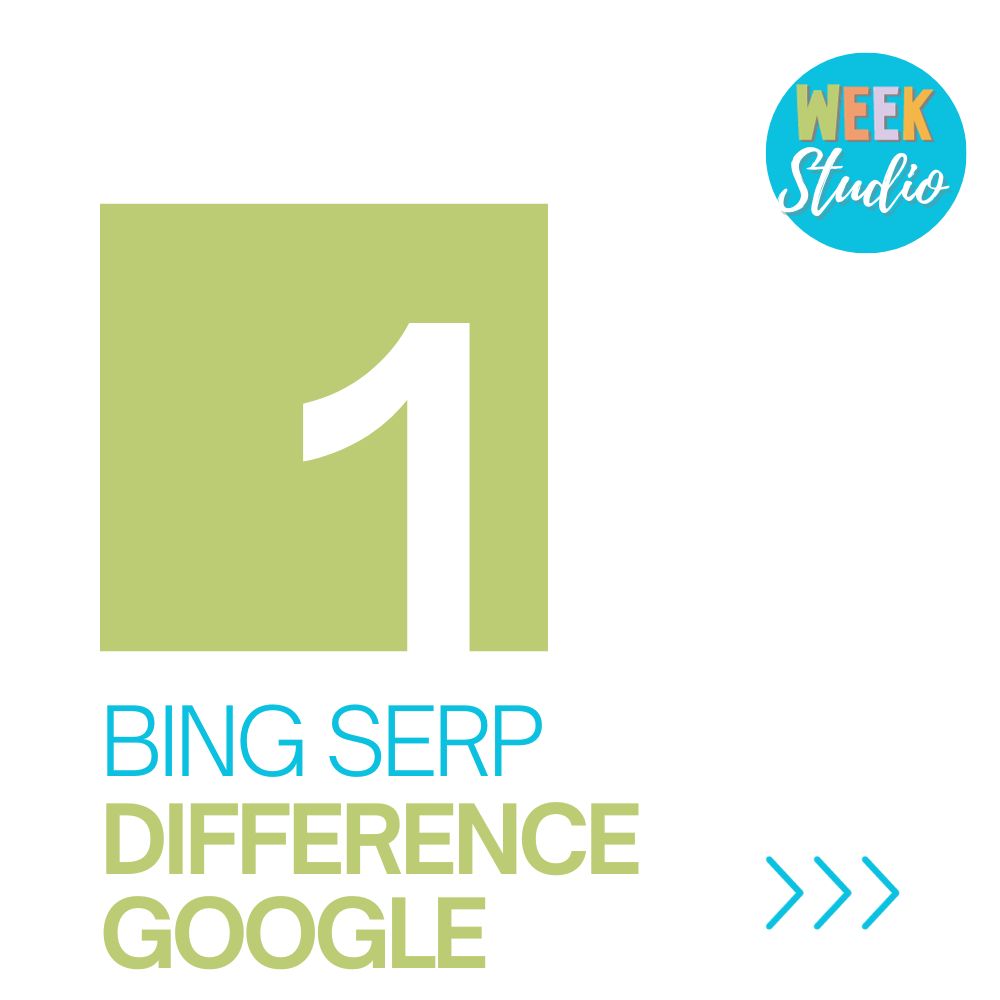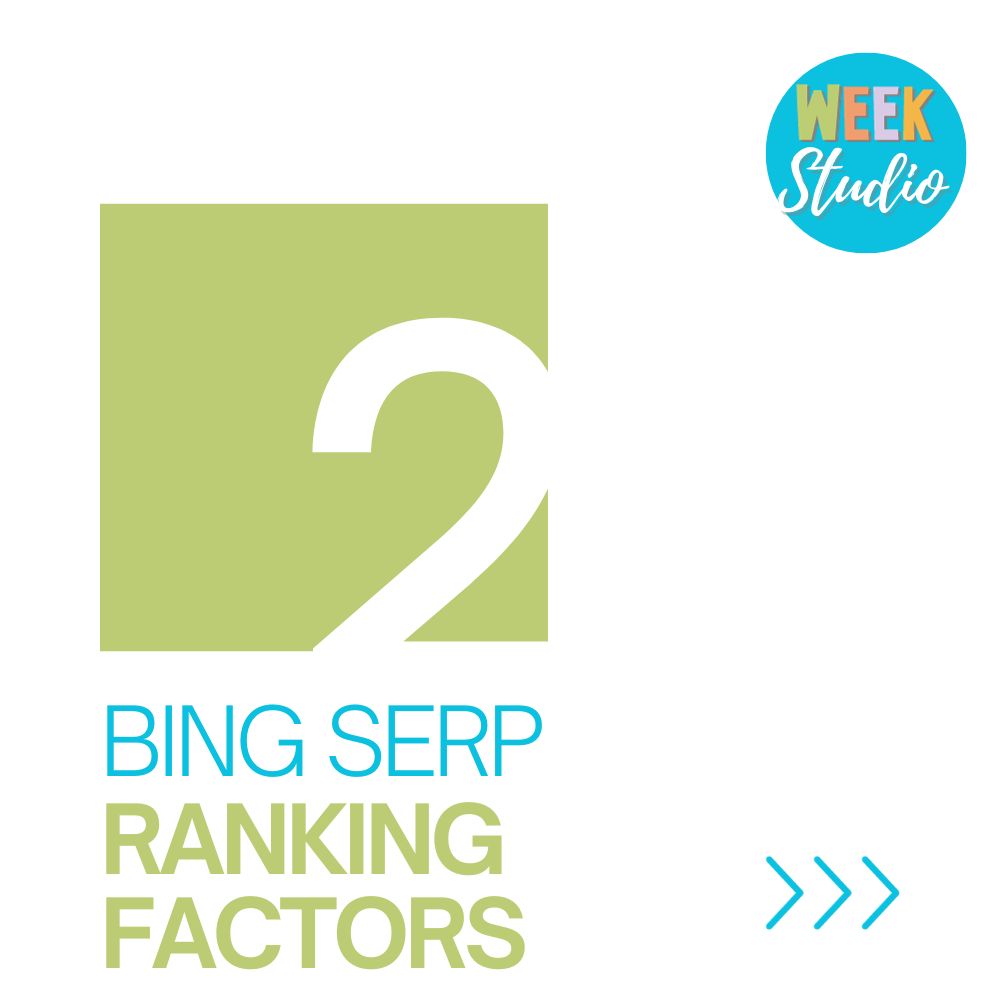In the ever-evolving landscape of search engines, Bing has carved its niche as a powerful contender. As Google’s worthy counterpart, Bing Search Engine Result Pages (SERP) play a crucial role in shaping the online visibility of websites. While many SEO strategies are tailored for Google, overlooking Bing can be a missed opportunity, especially considering its substantial user base.
Bing, owned by Microsoft, is more than just an alternative search engine. With a focus on delivering relevant and visually appealing search results, Bing SERP introduces a unique dimension to the world of SEO. Understanding the intricacies of Bing’s ranking algorithms and user preferences is essential for any website looking to establish a robust online presence.
As we delve deeper into the dynamics of Bing SERP, we’ll uncover the key differences between Bing and Google, explore the factors influencing Bing’s ranking, and unravel effective strategies to optimize your content for enhanced visibility on this dynamic search engine. So, fasten your seatbelts as we embark on a journey into the realm of Bing SERP and discover the untapped potential it holds for your website’s SEO success.
Key Differences Between Bing and Google SERP

Navigating the world of search engine optimization requires a keen understanding of the variances between different search engines. Bing and Google, the two giants in this domain, exhibit distinct characteristics that significantly impact how websites are ranked on their respective SERPs.
- Algorithm Variances Google and Bing: employ distinct algorithms to determine search rankings. While Google focuses heavily on link authority and content relevance, Bing places more emphasis on social media signals and page load times. Understanding these algorithmic differences is crucial for tailoring your SEO strategies to each search engine’s preferences.
- User Demographics and Preferences: Bing attracts a unique user demographic that differs from Google’s user base. Statistics suggest that Bing users are often older and have a higher disposable income. Tailoring your content to align with the preferences of Bing users can provide a strategic advantage in reaching specific target audiences that might be underrepresented on other search engines.
As we explore these key differences, it becomes evident that a one-size-fits-all approach to SEO may not yield optimal results. By delving into the intricacies of Bing SERP, you open doors to a diverse audience and enhance your website’s visibility in this distinct search engine ecosystem.
Bing SERP Ranking Factors

Achieving a high ranking on Bing SERP involves understanding and strategically aligning with the factors that influence Bing’s search algorithms. Unlike other search engines, Bing has its own set of criteria that determine how websites are positioned in search results. On-Page SEO for Bing Bing values well-structured, keyword-rich content. Incorporate relevant keywords naturally in your titles, headings, and throughout your content. Pay attention to meta tags, including meta descriptions and meta titles, as Bing relies on them to understand your page’s content.
Backlink Considerations While backlinks are crucial for Google, Bing puts less emphasis on them. However, high-quality backlinks can still positively impact your Bing SERP ranking. Focus on obtaining links from reputable sources, and ensure they are relevant to your content. Social Signals on Bing Bing places importance on social signals, considering social media activity when ranking pages. Engage with your audience on platforms like Facebook and Twitter, and encourage social sharing. A strong social media presence can positively influence your Bing SERP performance.
Optimizing for Bing involves a nuanced approach. By paying attention to on-page SEO, cultivating quality backlinks, and leveraging social signals, you can enhance your website’s visibility on Bing SERP. As we explore further, we’ll uncover more strategies to fine-tune your content for optimal performance on this dynamic search engine.
Optimizing Content for Bing SERP

Creating content that resonates with Bing’s search algorithms requires a nuanced approach. From keyword research to formatting, here’s a comprehensive guide on optimizing your content for maximum visibility on Bing SERP. Keyword Research for Bing and Google may share some common ground, but their algorithms interpret keywords differently. Conduct thorough keyword research specifically tailored for Bing. Look for long-tail keywords and consider user intent to align your content with Bing’s search queries effectively.
Content Structure and Formatting bing appreciates well-organized content. Ensure your pages have clear headings, subheadings, and a logical structure. Use descriptive and concise headings to guide both users and search engines through your content. Structured content not only enhances readability but also aids Bing in understanding the context of your pages. Image and Multimedia Optimization Bing places importance on multimedia elements. Incorporate videos where relevant, ensuring they are engaging and provide value to users. By enriching your content with multimedia, you create a more appealing and informative experience for Bing users.
Remember, Bing is all about delivering a visually pleasing and informative search experience. By fine-tuning your content structure, utilizing relevant keywords, and incorporating engaging multimedia, you position your website for success on Bing SERP. Let’s now explore the intricacies of local SEO, another crucial aspect of optimizing for Bing.
Local SEO on Bing

Unlocking the full potential of Bing SERP involves a keen understanding of the importance it places on local search. Local SEO on Bing is not only about optimizing for global visibility but also catering to users searching for products and services in specific geographic locations. Importance of Local Listings Bing values local business information. Ensure that your business is listed accurately on Bing Places for Business. Provide up-to-date details, including your address, phone number, business hours, and a brief description. This information not only helps Bing understand your business but also improves your chances of appearing in local search results.
Bing Places for Business Claiming and verifying your business on Bing Places is a crucial step in local SEO. Optimize your Bing Places profile with high-quality images, relevant categories, and customer reviews. Bing Places acts as a gateway for local users to discover and engage with your business directly from the search results. Local SEO on Bing is an excellent way to tap into regional markets and connect with users seeking nearby products or services. By optimizing your business information and leveraging Bing Places for Business, you enhance your visibility in local search results, giving your website a competitive edge on Bing SERP. Stay tuned as we delve into mobile optimization for Bing in the next section.
Mobile Optimization for Bing SERP

In a world where mobile devices dominate online interactions, optimizing your website for mobile compatibility is not just a best practice; it’s a necessity. Bing, like other search engines, values mobile-friendly experiences. Here’s how you can ensure your content shines on Bing SERP for mobile users. Responsive Design for Bing Bing appreciates websites that adapt seamlessly to different screen sizes. Implement a responsive design that ensures your content looks and functions well on various devices. A responsive website not only caters to Bing’s preferences but also provides an enhanced user experience, a factor increasingly important for search engine rankings.
Mobile-Friendly Content Tips Craft content with mobile users in mind. Keep paragraphs concise, use clear headings, and ensure that users can easily navigate your site on smaller screens. Optimize images for faster loading times on mobile devices, contributing to both user satisfaction and better performance on Bing SERP. As mobile usage continues to surge, optimizing for mobile is not just about meeting search engine requirements; it’s about delivering a seamless experience to your audience. By prioritizing responsive design and tailoring your content for mobile users, you position your website for success not only on Bing but across the digital landscape. Next up, let’s explore the valuable tools offered by Bing through Bing Webmaster Tools.
Bing Webmaster Tools

Bing Webmaster Tools is a powerful suite of features designed to help webmasters understand how Bing sees their websites and to optimize their presence on Bing SERP. Let’s explore the key aspects and functionalities of Bing Webmaster Tools. Bing Webmaster Tools provides a comprehensive overview of how your website performs on Bing. It offers insights into crawl errors, indexing status, and search queries that lead users to your site. Take advantage of features like the Site Explorer to see how Bing views your site and identify areas for improvement.
How to Use Bing Webmaster Tools for SEO?
Utilize Bing Webmaster Tools to fine-tune your SEO strategy. Submit your sitemap to Bing to ensure efficient crawling and indexing. Monitor your site’s performance through the dashboard and address any issues highlighted by Bing. Leverage the tool’s data to identify keywords driving traffic and optimize your content accordingly.
Bing Webmaster Tools is an indispensable resource for webmasters looking to enhance their website’s performance on Bing SERP. By regularly monitoring and optimizing based on the insights provided, you can stay ahead in the SEO game. Moving forward, let’s explore the impact of rich snippets on Bing SERP and how you can leverage them for improved visibility.
Rich Snippets and Bing SERP

Rich snippets play a pivotal role in enhancing the visibility and appeal of your content on Bing SERP. These informative snippets provide users with a sneak peek into the content, making your listing stand out. Let’s dive into the significance of rich snippets and how you can leverage them to your advantage. Importance of Rich Snippets, rich snippets are designed to provide users with more information about your content directly on the search results page. This additional context can significantly increase click-through rates and improve the overall user experience. Bing, like other search engines, recognizes the value of rich snippets in delivering more informative search results.
Markup Options for Bing supports various types of structured data markup that can be used to generate rich snippets. Markup options include Schema.org, which allows you to tag different elements on your page, such as reviews, recipes, events, and more. By incorporating structured data markup, you enable Bing to present enhanced search results, giving users a better understanding of your content. When aiming for visibility on Bing SERP, don’t overlook the power of rich snippets. Implementing structured data markup not only provides a more engaging search experience but can also contribute to higher rankings. As we continue, we’ll delve into the crucial aspects of user experience and how it impacts your standing on Bing SERP.
Analytics and Tracking on Bing SERP

Effectively analyzing and tracking your website’s performance on Bing SERP is crucial for refining your SEO strategies. Bing provides a set of tools and metrics through Bing Webmaster Tools, enabling you to gain insights and make informed decisions to enhance your search visibility. Setting Up Tracking Tools Integrate tracking tools such as Bing Webmaster Tools and Bing Analytics to monitor your website’s performance. These tools offer valuable data on search queries, click-through rates, and user behavior. Set up these tools to receive regular reports and stay informed about your site’s standing on Bing SERP.
Analyzing Bing-Specific Metrics
Bing Webmaster Tools provides unique metrics that are specific to Bing SERP. Dive into data such as impressions, clicks, and average position to understand how your site is performing on Bing. Analyze this information to identify trends, track the effectiveness of your SEO efforts, and make data-driven adjustments. By actively tracking your website’s performance on Bing SERP, you gain a deeper understanding of user interactions and search visibility. These insights empower you to refine your content, keywords, and overall strategy, ensuring you stay ahead in the competitive landscape of Bing search. As we move forward, let’s address common challenges in Bing SEO and strategies to overcome them effectively.
Common Challenges in Bing SEO

While optimizing for Bing SERP offers unique advantages, it comes with its own set of challenges. Understanding and addressing these challenges is crucial for a successful SEO strategy on Bing. Let’s delve into some common hurdles and effective strategies to overcome them. Addressing Indexing Issues Bing may encounter challenges when indexing certain websites or pages. Ensure that your website is accessible to Bing’s crawlers by checking your robots.txt file and resolving any potential crawl issues. Submitting an XML sitemap through Bing Webmaster Tools can also facilitate smoother indexing.
Troubleshooting Ranking Problems
If your website is not ranking as expected on Bing SERP, investigate potential issues with your on-page SEO. Check for relevant keywords, optimize meta tags, and ensure your content aligns with Bing’s algorithmic preferences. Additionally, focus on building high-quality backlinks to improve your site’s authority. Aligning with Bing’s Algorithmic Nuances understanding the subtle differences in algorithms between Bing and other search engines is crucial. Tailor your SEO strategy to align with Bing’s preferences, including a focus on social signals, well-structured content, and a mobile-friendly user experience.
Successfully navigating these challenges requires a proactive approach. Regularly monitor your website’s performance on Bing, stay informed about algorithmic updates, and fine-tune your strategies accordingly. As we move towards the conclusion, let’s explore the evolving trends in Bing SERP and how they may impact your future SEO efforts. Stay tuned for insights into what lies ahead in the dynamic world of Bing search.
Future Trends in Bing SERP

The landscape of search engines, including Bing, is in a constant state of evolution. Staying ahead of the curve involves anticipating future trends and adapting your SEO strategies accordingly. Let’s explore some anticipated trends in Bing SERP that could shape the future of search engine optimization.
- Bing’s Evolving Algorithms: As with any search engine, Bing regularly updates its algorithms to provide users with the most relevant and high-quality results. Stay abreast of algorithmic changes and be prepared to adjust your SEO tactics to align with Bing’s evolving criteria for ranking websites.
- Anticipated Changes in SEO Strategies: The field of SEO is dynamic, and strategies that work today may need adjustments in the future. Keep an eye on emerging SEO trends, such as the growing importance of user experience, artificial intelligence, and voice search. Anticipating these changes allows you to proactively optimize your content and stay competitive on Bing SERP.
In the ever-changing landscape of search engine optimization, the ability to adapt is paramount. By staying informed about anticipated trends and remaining flexible in your approach, you position your website for sustained success on Bing SERP. As we conclude this exploration, let’s summarize the key takeaways and insights gained on optimizing for Bing search.
Conclusion
Optimizing for Bing SERP involves a multifaceted approach, from understanding algorithmic nuances to crafting engaging content and prioritizing user experience. By addressing challenges, leveraging tools like Bing Webmaster Tools, and staying ahead of evolving trends, you can position your website for success on Bing and reach a diverse audience. As you navigate the dynamic landscape of search engine optimization, remember that the key lies in continuous adaptation and a commitment to delivering valuable and user-centric content.
Frequently Asked Questions (FAQs)
- 1. Is Bing a viable alternative to Google for SEO?: Yes, Bing is a viable alternative to Google, especially considering its unique user demographic. Optimizing for Bing can broaden your audience reach and enhance your overall online visibility.
- 2. How often should I check my website’s performance on Bing Webmaster Tools?: Regular monitoring is advisable. Check your performance metrics on Bing Webmaster Tools at least once a month to identify trends, address issues promptly, and optimize your SEO strategy accordingly.
- 3. Are there specific ranking factors that Bing values more than Google? Yes, Bing places more emphasis on social signals, page load speed, and structured content. Tailoring your SEO strategy to align with these factors can positively impact your rankings on Bing SERP.
- 4. What is the significance of rich snippets in Bing SEO? Rich snippets enhance your search results by providing additional information to users. Implementing structured data markup, such as Schema.org, can help generate rich snippets and improve the visibility of your content on Bing SERP.
- 5. How can I stay updated on future trends in Bing SERP? Stay informed by regularly checking Bing’s official announcements, monitoring industry publications, and participating in SEO Bing’s communities. Being proactive in adapting to anticipated trends will give you a competitive edge in Bing SEO.
